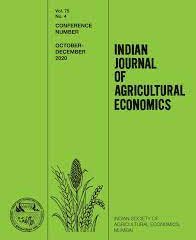
Combating Hidden Hunger through Micro-Nutrient Dense Biofortified Foods
The burden of malnutrition in the world is unacceptably high and is estimated to adversely affect two billion people. The extent of ‘hidden hunger’ in South Asia is much more widespread than other parts of the world. Anemia among pregnant women (52%) and children of less than five years (58%) in South Asia exceeds the global prevalence (38 and 43%, respectively) as does inadequate zinc intake (at 30% vs. 17%), apart from alarmingly high Vitamin A deficiency to the extent of 31-57% of preschool children. Nearly 45% of children deaths are associated
with malnutrition (Harding et al., 2018). Climate change further aggravates this burden of malnutrition in South Asia by reducing iron, zinc and protein in plants like wheat, rice, maize and soybean (Myers et al., 2014). Micro-nutrient deficiencies result in poor health, low cognitive development, low educational outcomes, work productivity and earnings thereby reducing the total welfare in the society. The situation is much more depressing in India with a huge malnutrition related cost of 9.1 million disability adjusted life years and a reduction of national income by 4%.
Find on this page
Contact Us
Institute of Economic Growth, University Enclave, University of Delhi (North Campus),
Delhi 110 007, India
system@iegindia.org
+91-11-27666364/6367, 27667101/7288/7365/7424
+91-11-27667410




